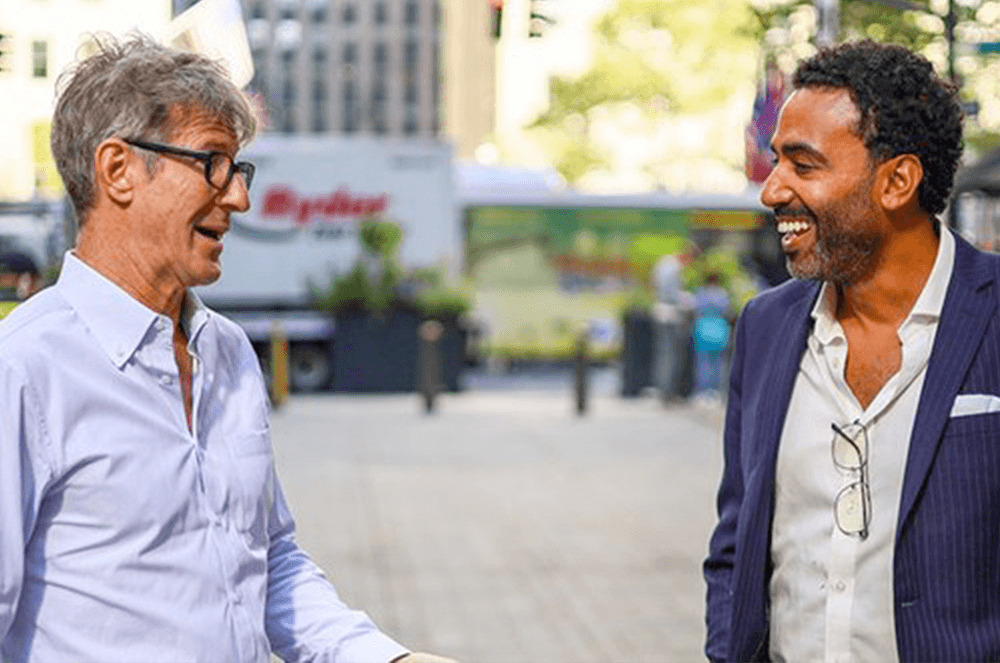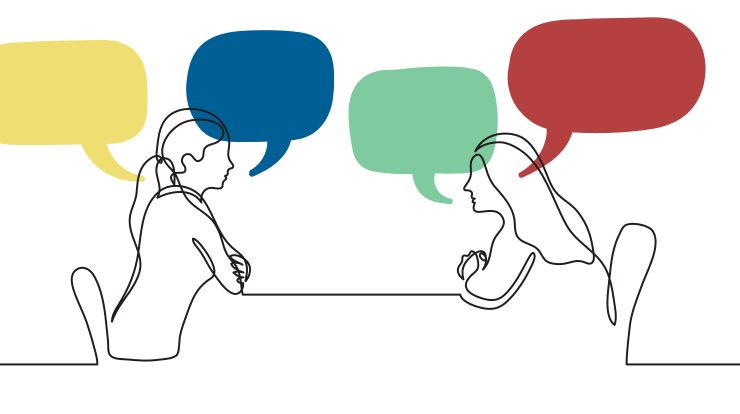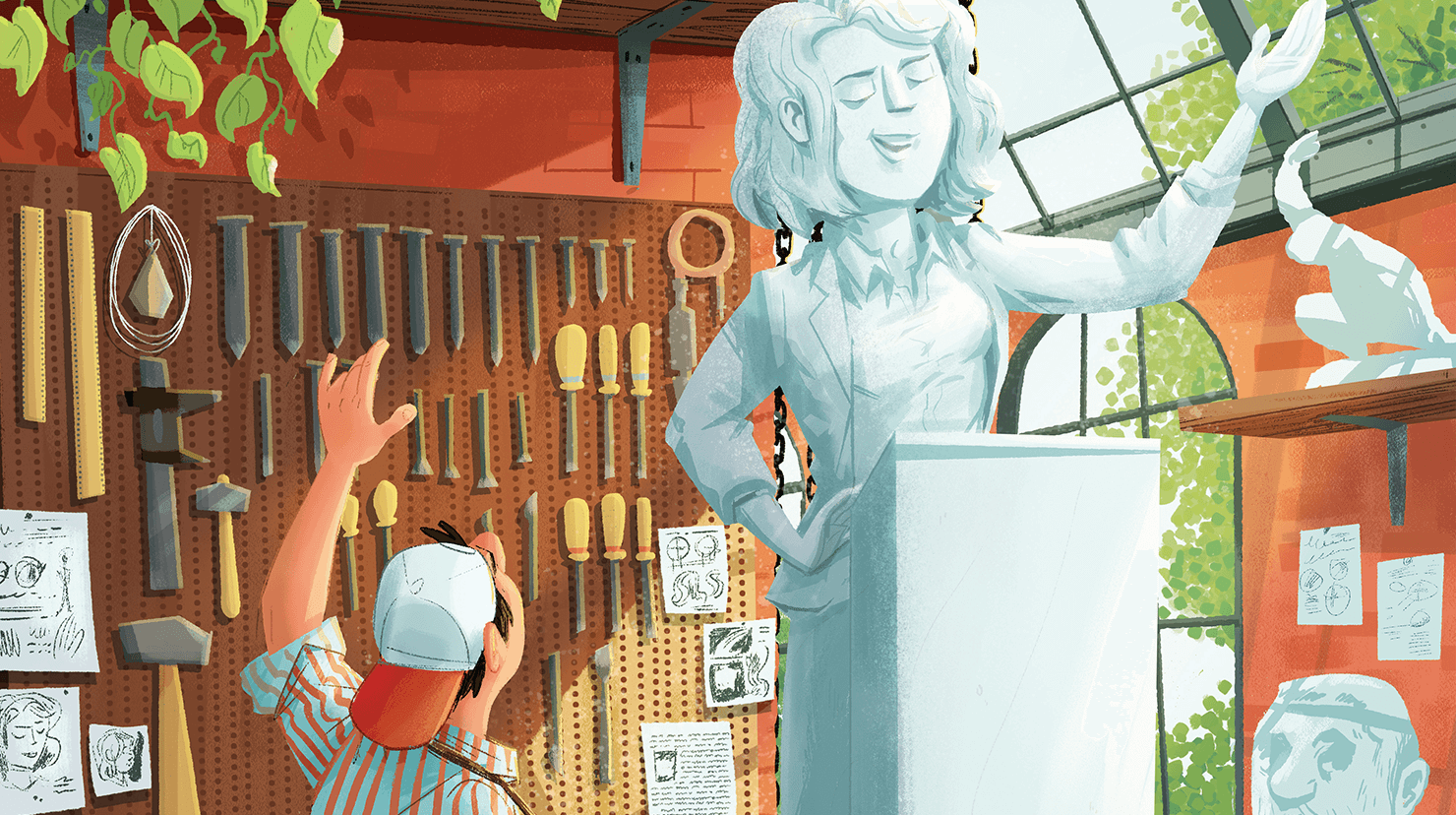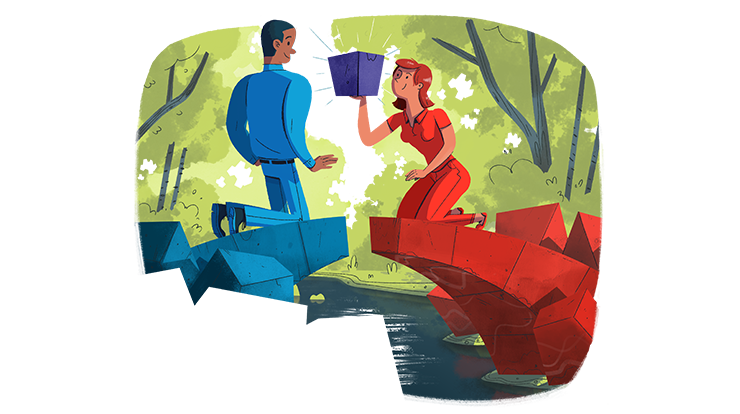
As a Toastmaster, you appreciate human connections. You enjoy honing your communication skills, delivering speeches, and participating in contests. When asked, you take pleasure in extolling the virtues of Toastmasters. Communicating with others is an essential part of who you are.
But in the last few years, something has happened to our society. Our discourse has become polarized and angry. People have always had honest differences of opinion on important subjects; however, now everything seems controversial. Often just mentioning a topic like immigration, health care, or religion can lead to heated arguments.
Can the skills you’ve learned in Toastmasters—such as listening, evaluating, and sharing—help tamp down this anger?
Recently, I discovered several authors who recognize this growing problem and have developed strategies to help turn down the volume on these contentious issues.
Talk to Me
My first stop was the book I Have Something to Say, by American author, speech expert, and former Toastmaster John Bowe. In 2010 Bowe learned that his cousin, who had spent 43 years living as a recluse because of severe shyness and insecurity, had gotten married. Bowe wondered what brought this about—drugs? Counseling? No, his cousin joined Toastmasters and developed his communication skills and self-confidence. Later, he met a woman and started talking to her, and in five months, they were married.
As Bowe describes in his book, that stimulated his curiosity about Toastmasters. He joined, studied founder Dr. Ralph C. Smedley’s writings, and read Aristotle’s lectures on rhetoric. What he learned made him a better speaker and changed his views on human interactions.
Click play to hear an interview with John Bowe and the hosts of The Toastmasters Podcast.
Before joining Toastmasters, Bowe believed public speaking was mostly about transmitting information. Study up on a subject and tell others about it. However, after giving a few speeches and contemplating what he read, Bowe realized that the primary purpose of rhetoric is to persuade. It wasn’t so much what you said but how you said it. And that, he admitted, “did not mean clobbering others with your opinion.”
Over 2,000 years ago, Aristotle wrote that a good speech should have three components: logos (information), pathos (emotion), and ethos (the speaker’s moral character). Of the three, ethos was the most important. The audience must relate to the speaker. They won’t be convinced of anything if they don’t relate to the speaker’s worldview.
Talking with another person formally or informally should be a social transaction, not just an information transfer. Speakers should ask themselves, why should this person listen to me? If the audience misses the main points of the speech, it’s not their fault. It means the speaker didn’t relate favorably to them and failed to communicate the message. Aristotle summed it up in a single sentence: “The audience is the end and object of the speech.”
We could blame polarization and rude behavior on all sorts of externalities—social media, digital technology, shady politicians, the pandemic—and these certainly have had their role. But Bowe argues that if we learned to communicate better, these problems would dramatically diminish. Effective communication means delivering your message so others can understand it.
For the Greeks, effective speaking was central to building character. Bowe believes that the ability to speak and think clearly must be integral to education systems. Every young person must be taught effective speaking techniques. No one is born with this skill. Teaching this skill to everyone would be a simple, inexpensive solution to our “fraying social, emotional, and political health,” says Bowe.
The Listening Project
Diving more into Bowe’s point about teaching young people effective speaking, I found sources who said that education should be about nurturing their human capacity to explore, discover, and engage with each other, as well as with their teachers and other adults. Dr. Niobe Way, author of Rebels with a Cause: Reimagining Boys, Ourselves, and Our Culture, and a professor of applied psychology at New York University, pointed out that many middle school students are in a “crisis of connection.” And that age group is significantly more likely to be suspended for misconduct than older students. She and Dr. Joseph Derrick Nelson, associate professor at Swarthmore College, believe education should be more than filling students’ heads with information and then testing to see what they retain. So, they developed The Listening Project to counter this trend.
In The Listening Project, students break into pairs and conduct “transformative interviews.” These usually begin with questions about parents and upbringings, then quickly transition to open-ended queries designed to delve into more interesting topics or “gold nuggets.” As discussions proceed, interviewers learn about themselves and those they are interviewing.
The goal is to replace judgment with curiosity and negative feelings with empathy. When the interviews are over, each student writes a short biography of their partner. Way believes this will help head off a lifetime of bigotry and violence by fostering meaningful interpersonal relationships. The key is to avoid categorizing people based on superficial interactions.
How to Know a Person
After learning about why we communicate and how we can start teaching it to younger generations, I observed what leads to a healthier society.
David Brooks, a political and cultural commentator, states that in a healthy society, everyone should feel valued and understood. He points out in his book, How to Know a Person, that if we want to combat the recent wave of negative social and political discourse, we must start treating each other better. Communication, he feels, begins as soon as we meet a person, and if we disagree, we must do so courteously. Everyone should develop their social skills and strive to be great conversationalists. In a discussion, everyone should feel “respected, heard, and understood.”
Brooks draws from the fields of psychology, education, philosophy, and neuroscience, as well as the arts, to develop suggestions for improving human connections and becoming a better communicator.
What Can We Do as Toastmasters?
We can do a lot. When a stranger asks about Toastmasters, it’s tempting to start at the personal level. You point out the advantages of developing your communication and leadership skills. You describe how friends and colleagues benefit from this organization.
But as Toastmasters, we shouldn’t ignore the societal benefits of effective speaking and listening skills, especially during these divisive times. We need to demonstrate our character—our ethos—to others. We need to show new acquaintances that we strive to be good listeners and good speakers. And we should always treat our audience respectfully—whether it’s one person or a roomful.
Effective communication means delivering your message so others can understand it.
For the last 100 years, Toastmasters has been an inwardly directed organization. But as we enter the second millennium, we should help quell the angry rhetoric that has become too common. Even Smedley believed from the beginning that Toastmasters have a responsibility to advocate for good. We are more than a speaking organization—“listening” and “connecting” are significant components of the program.
Other ways we can help tamper angry rhetoric:
- Discuss with other Toastmasters how extreme polarization could negatively affect the world our children and grandchildren inherit.
- Ask club members to deal with this issue in prepared speeches, Table Topics® questions, and evaluations.
- Add this topic to Speakers Bureau presentations.
- Read and discuss books, such as I Have Something to Say, Rebels with a Cause, How to Know a Person, and others.
When Bowe became involved with Toastmasters, he worried we might be “quaint or out of date.” It is true that once a week, we interact like members did 100 years ago. We meet in a small room to talk, listen, and ask questions. That may seem out of date. But that simple activity could be the key to the more connected and open society we desperately need.
Andrew Miller lives in Tallahassee, Florida, and belongs to PMI Tallahassee Toastmasters. He is a retired biologist who now devotes his time to creative writing, volunteering, and environmental consulting. His website is www.andrewcmiller.com.
Related Articles

Communication
Mastering Controversial Conversations

Language
The Crafting of Eloquence

Communication



 Previous
Previous

 Previous Article
Previous Article